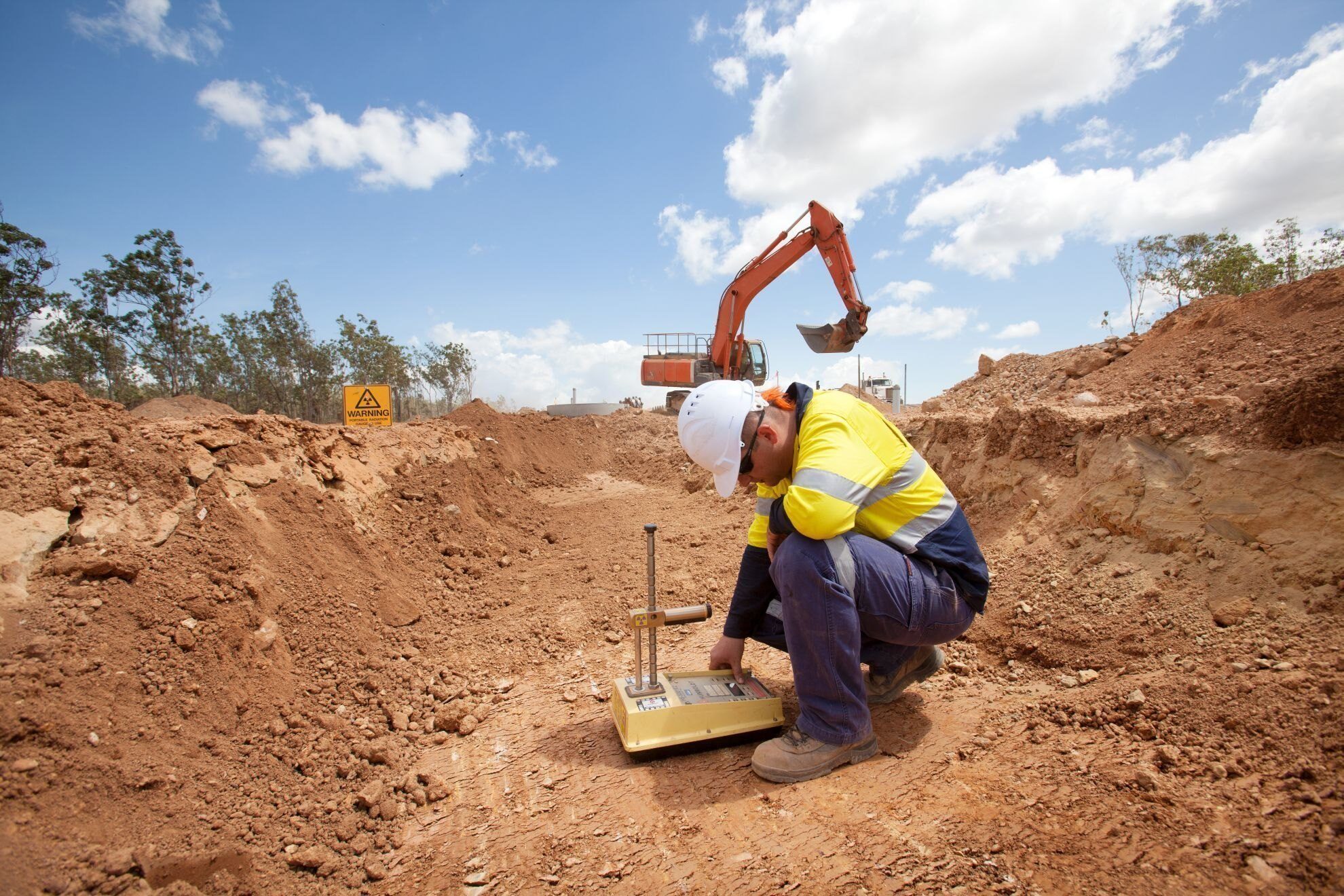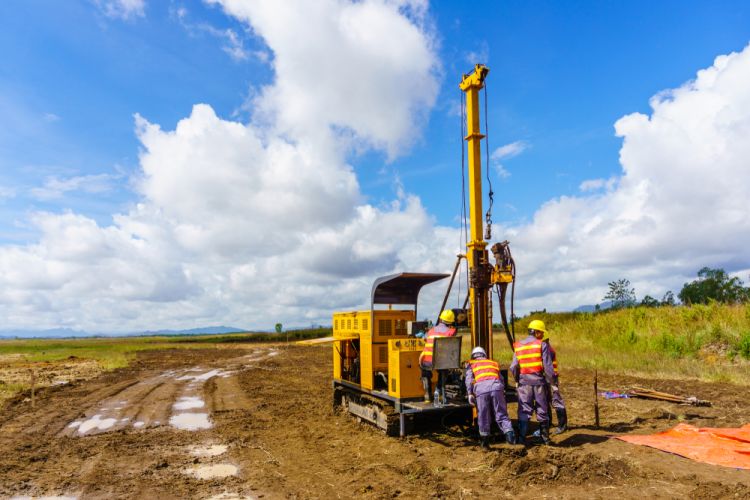The Definitive Guide to Geotechnical Engineering For Construction Projects
The 6-Minute Rule for Geotechnical Engineering For Construction Projects
Table of ContentsThe Of Geotechnical Engineering For Construction ProjectsTop Guidelines Of Geotechnical Engineering For Construction ProjectsThe smart Trick of Geotechnical Engineering For Construction Projects That Nobody is Talking AboutThe 2-Minute Rule for Geotechnical Engineering For Construction ProjectsHow Geotechnical Engineering For Construction Projects can Save You Time, Stress, and Money.
For that reason, throughout the investigation, it is necessary to drill at the needed deepness and the called for number of openings according to the recommendation of the Canadian Structure Design standard. In some cases, the proprietor could save some Geotechnical Investigation expense yet finish up investing greater than the prepared for throughout the building price.The responsibilities of the geotechnical consultant entail providing material screening for building support. Geotechnical Engineering for Construction Projects. Geotechnical engineers analyse all the field test records to ensure that construction is taking place based on the job spec. Throughout construction, a confirmatory test for soil compaction is done on-site to make certain that no future settlement occurs
After the concrete is put -7 days and 28 days- tests are conducted on concrete examples gathered from the website to guarantee that the concrete poured fulfills the style criterion. Asphalt core is taken after the Asphalt is laid and compacted to confirm that it meets the style criterion. All lab test reports are evaluated by the Geotechnical Designer to ensure that it fulfills the project requirements.
3 Simple Techniques For Geotechnical Engineering For Construction Projects

Geotechnical design plays a critical function in guaranteeing the security of building tasks. Learn how it impacts style and overall project success. Geotechnical design is a crucial branch of civil engineering that concentrates on understanding the behaviour of earth products, such as soil and rock. It entails analysing subsurface conditions to ensure that a building's structure or facilities is secure and safe and secure.

For a trusted foundation and a smooth building and construction process, depend give the expertise you need. Call to get expert guidance and geotechnical solutions customized to your following job.
All About Geotechnical Engineering For Construction Projects
When embarking on a land advancement job, comprehending the ground under your feet is as essential as the frameworks you intend to develop over it. Our Geotechnical Engineering team analyse the ground, guaranteeing it appropriates for the recommended development while supplying you with the info required to meet your task goals.
Geotechnical Engineering looks at the development of the ground, as it is the foundation for all jobs. Where frameworks require to be created relative to the ground problems; ground conditions (e.g., soft ground) might need reinforcing relying on the dimension of the intended structure. Prior to building, you require to find out about the groundwater, dirt structure, and liquefaction possibility of your land.
For sites that are not linked on the neighborhood authority facilities added website examinations would be called for to give technological inputs for on-site stormwater and wastewater. We have actually experienced Geotechnical Designers based in each office, supporting your geotechnical requirements nationwide. Connect to us to discuss exactly how we can sustain your next task.
These reports are tailored to fulfill the details demands of a job and consist of design specifications and advice for the building and construction of a range of man-made structures. As well as giving consultancy services covering locations such as incline stability and load-bearing capabilities for various products, these designers undertake r & d activities to boost approaches, equipment, materials expertise and evaluation covering entire lifecycles.
The 9-Second Trick For Geotechnical Engineering For Construction Projects

Nonetheless, rates of pay typically increase as your knowledge and abilities grow, with guidelines directing to a graduate beginning wage of in between 18,000 and 28,000 each year in the UK. This rises to 26,000 to 36,000 with a couple of years of experience and after that getting to 40,000 to 60,000+ for senior, chartered or master designers.
However, with the best application it is possible to master the occupation and gain access to a tough yet satisfying and essential career. A geologist would need to re-train to end up being a geotechnical engineer, although there is a lot of cross-over in between both careers, which might make this much easier - Geotechnical Engineering for Construction Projects. Rock hounds require to have an understanding of soils, rocks and various other materials from a clinical point of view, while geotechnical engineers tale their understanding of matters such as dirt and rock mechanic, geophysics and hydrology and use them to engineering and environmental look these up tasks
When beginning out, these designers will have a tendency to work with much less intricate projects, developing knowledge and experience prepared for even more difficult work later. Geotechnical engineers have a tendency to be experts in specific locations as they expand in experience, concentrating on specific infrastructures such as railways, roadways or water. These engineers likewise function with renewable resource, offshore and onshore oil and gas, nuclear power, and a lot more.
The Definitive Guide to Geotechnical Engineering For Construction Projects
The moment Read More Here taken to become a geotechnical designer relies on where you are based, where you research and what level of education and learning you intend to achieve prior to going into the office. For instance, are you going to check out an apprenticeship, take an university degree or work on in the direction of a Master's or PhD? However, generally-speaking it takes 3-4 years to reach the standard needs to start a profession as a geotechnical engineer.
These procedures make it possible for professionals to examine a host of dirt auto mechanics including weight, porosity, void-to-solid particle proportion, permeability, compressibility, optimum shear strength, birthing ability and contortions. If the structure requires a deep foundation, designers will use a cone penetration examination to approximate the amount of skin and end bearing resistance in the subsurface.
When analyzing an incline's balance of shear tension and shear toughness, or its ability to hold up against and undergo activity, rotational slides and translational slides are typically considered. Rotational slides fail along a rounded surface area, with translational slides occurring on a planar surface. An expert's goal is to identify the problems at which an incline failure might take place.
Frequently, findings suggest that a site's soil need to be treated to boost its shear toughness, rigidity and permeability before style and construction. When it comes time to set out structure strategies, experts are significantly concentrated on sustainability, more particularly exactly how to minimize a structure's carbon footprint. One visit homepage technique has been to replace 20 percent of a foundation's concrete with fly ash, a waste product from coal fire power plants.